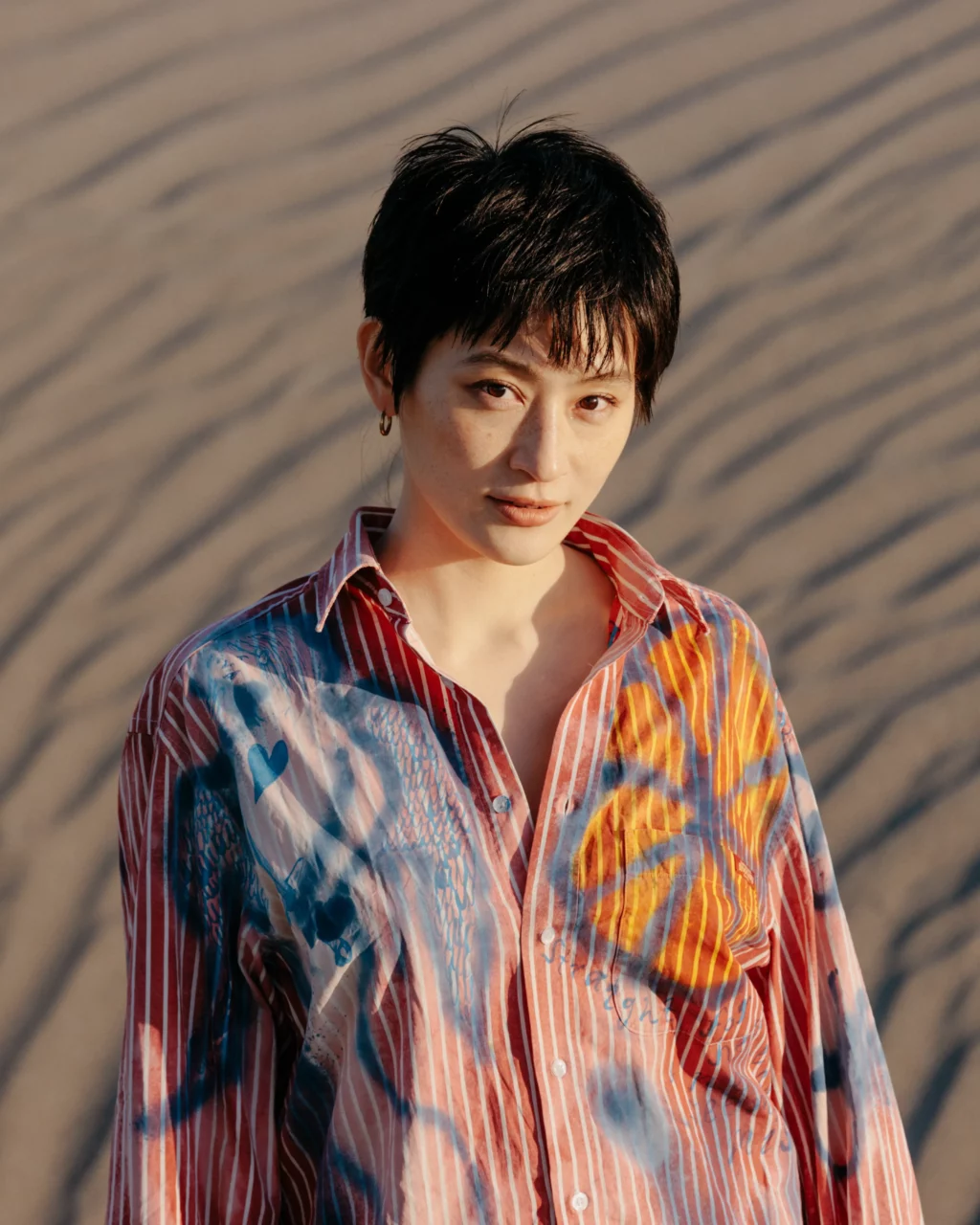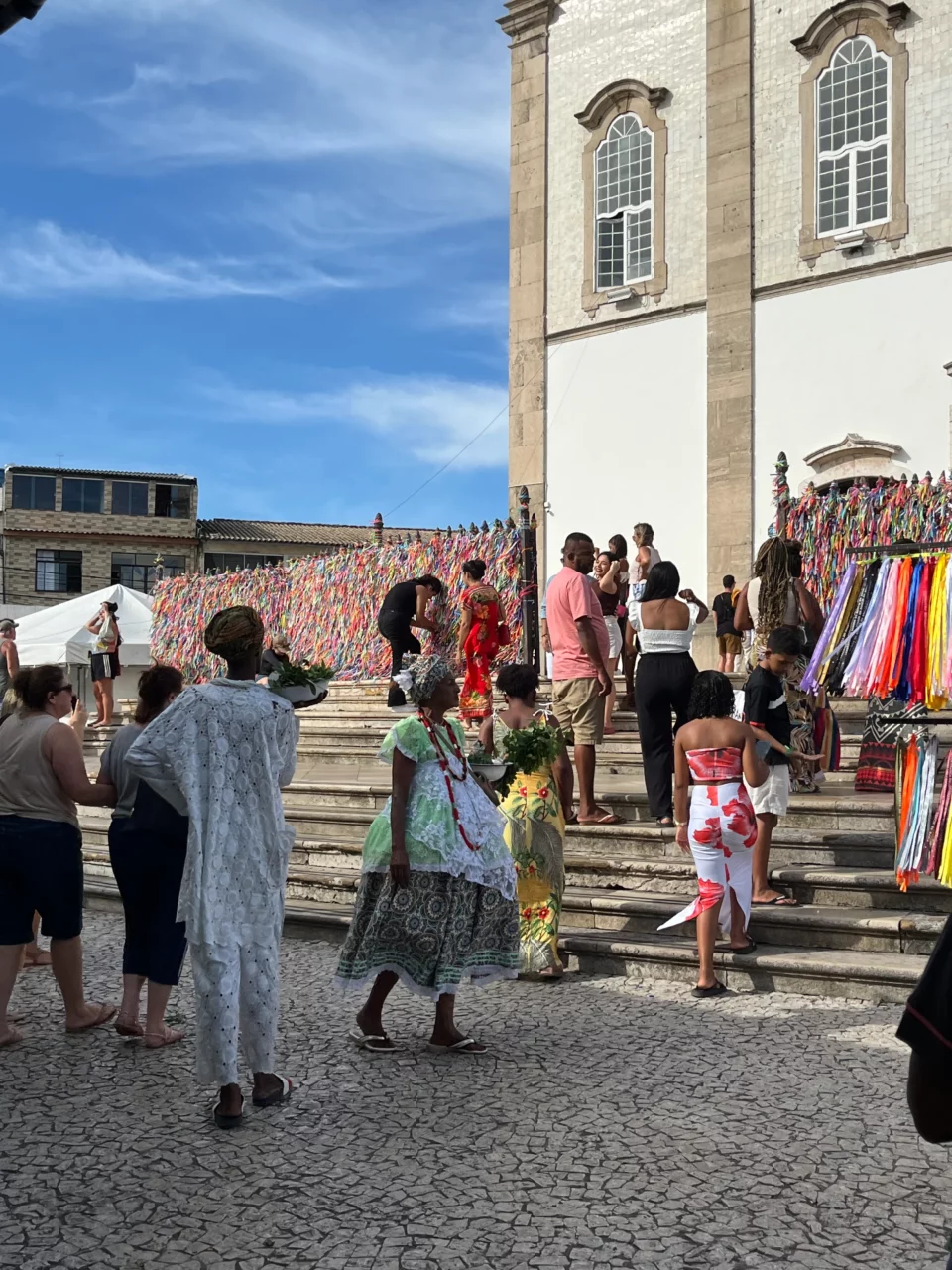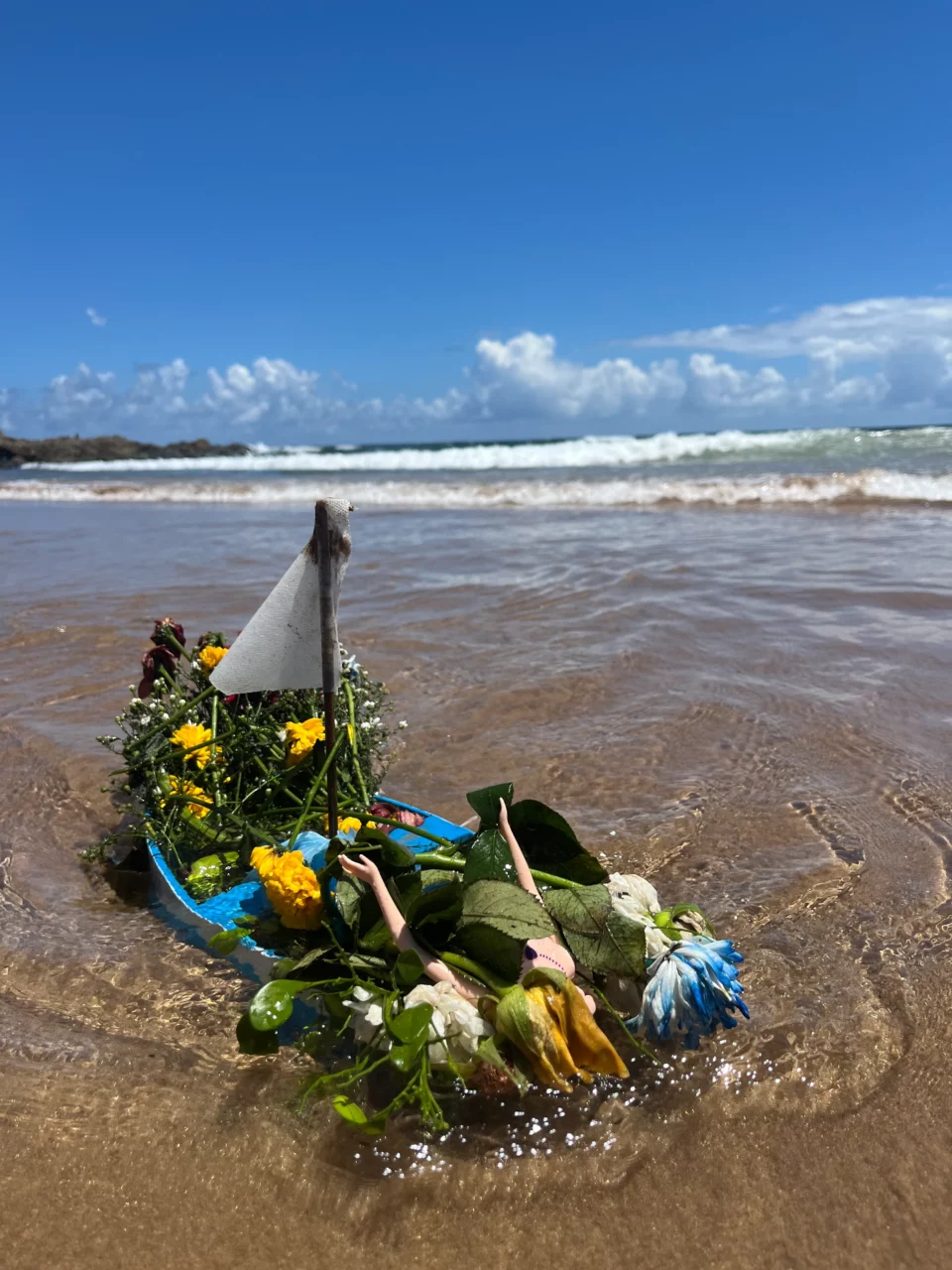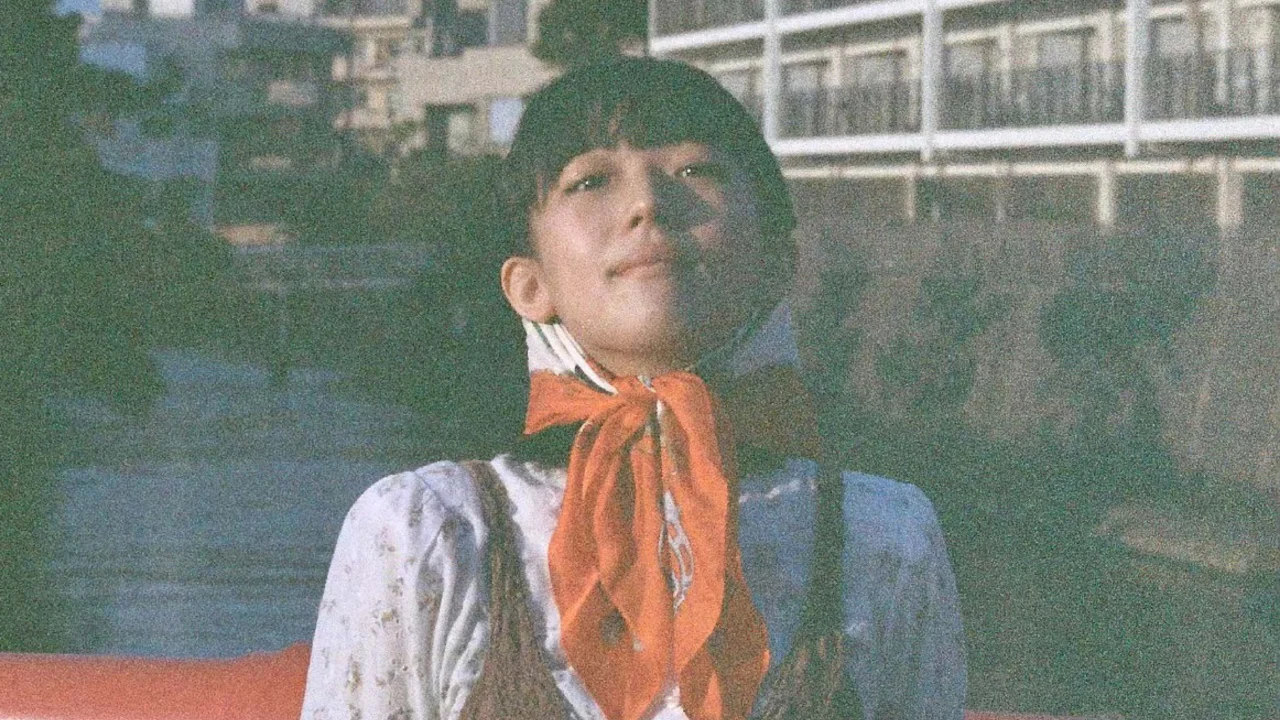In Salvador, a coastal city in northeastern Brazil pulsing with Afro-Brazilian rhythms and ancestral memory, KOM_I has found a new artistic heartbeat. Once a hub of the transatlantic slave trade, the city is now a vibrant cultural epicenter—and for KOM_I, it’s become a place of deep listening, learning, and transformation.
As she prepares for her upcoming performance at KYOTOPHONIE: Borderless Music Festival, where she’ll share the stage with Brazilian artist Felipe Cato and collaborate live with Nanao Kobayashi (FATHER), we dive into the sounds, spirits, and serendipities of Salvador that are reshaping her creative path.
INDEX
A Brazilian Kyoto? Reflecting on Salvador’s Heritage
How long have you been in Brazil?
KOM_I: I first moved in March 2024. Since then, I’ve probably clocked in a good seven or eight months here in total.

A shape-shifting artist working at the intersection of voice, body, and spirit, KOM_I channels influences from Japanese folk traditions, North Indian classical music, and the untamed rhythms of the natural world. Currently based in Bahia, Brazil, she’s immersed in writing a book born from her experience giving birth deep in the Peruvian Amazon.
From crafting the ethereal YAKUSHIMA TREASURE album with Oorutaichi, to echoing through the stone tombs of Asuka in A Dream Nestled in the Stone Chamber, and interpreting Christian Marclay’s No! at Tokyo’s Museum of Contemporary Art—her work weaves mythology, ritual, and raw emotion.
She co-founded the artivist collective HYPE FREE WATER with visual artist Minori Murata to spotlight water justice through creative action. A former frontwoman of Wednesday Campanella and an actress seen in projects like Followers and Fukudamura Incident, KOM_I continues to blur boundaries between the seen and unseen, rooted now in the vibrant cultural soil of northeastern Brazil.
So, what led you to stay in Brazil in the first place?
KOM_I: Originally, I wanted to go to India. I had been visiting India for years and studying singing with a teacher in Bangalore, so I used to tell people that I planned to spend the rest of my life there. It might sound superficial, but I was serious about it [laughs].
I don’t think that sounds superficial at all [laughs].
KOM_I: I still haven’t given up on India, but both my partner and I applied for the same grant, and my destination was India, while his was Brazil. If we both got accepted, we would go to both places. But I didn’t get in, and he was the only one accepted, so we decided to go to Brazil together. At first, I wasn’t thrilled about having to learn a new language there (since Brazil’s official language is Portuguese), but once I got there, I gradually became captivated by its charm.

What attracted you to Brazil?
KOM_I: I’m staying in Salvador, a city in the state of Bahia, and what really captivates me is the culture. It feels like I’m touching a fountain of culture that is constantly bubbling up. Salvador is the fourth largest city in Brazil by population and used to be the capital, so in that sense, it’s similar to cities like Nara or Kyoto in Japan. Brazil has a history of slavery during the Portuguese colonial period, and people from various African countries and tribes were brought here, crammed into ships with little more than the clothes on their backs. Salvador was a major port where many of these ships arrived, so even today, the city has a significant African population. This history is the root of all the culture I am experiencing here.

What aspects of the culture are you most interested in?
KOM_I: The roots of Capoeira, which I’m currently learning, are tied to enslaved Black people. It’s said that they developed this martial art while pretending to dance, resisting their oppressors with beauty through history. I’m particularly interested in tracing this physicality. Additionally, there’s an Afro-Brazilian religion called Candomblé, which developed among the Africans brought to Brazil, and its rituals are incredibly intense and beautiful in a way that words can’t capture. Before coming here, I really wanted to experience it, so if it weren’t for Candomblé, I might not have felt as convinced to come to Brazil [laughs].
Brazil has historically had many Japanese people, such as those who worked on coffee plantations, right?
KOM_I: Yes, that’s right. When I go to Brazil, I can’t help but think of the Japanese immigrants, especially those who worked on coffee plantations. If you look at history, after slavery ended in Brazil, they began accepting immigrants from Japan and other countries to fill the labor shortage on coffee plantations. There’s a strong connection between the African people who were brought to Brazil as slaves and the harsh labor that the Japanese immigrants were forced into. It’s deeply interconnected. So, I believe that showing respect for Afro-Brazilian history is very important for me as a Japanese person living in Brazil. That’s one of the reasons I’m so interested in the culture I mentioned earlier.

























